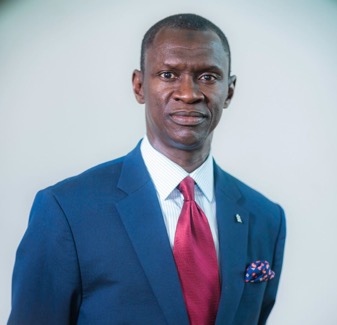
“Let all men know how empty and powerless the power of kings is, for there is none so mighty that he can overrule the law.”
Sir Edward Coke 1552–1634, Chief Justice of England
Proxy voting, by design, is intended to widen participation, granting a voice to those unable to be physically present. In theory, it upholds inclusion. In practice, however, when left in the wrong hands, it can become a weapon against accountability and a mask for manipulation.
When proxy voting is unregulated, opaque, and overseen by conflicted actors, it ceases to be a democratic instrument and becomes an illusion of participation that conceals the erosion of institutional legitimacy.
Proxy voting is not the enemy. The enemy is influence over process.
In the recent Marina International School Board elections, the dominance of proxy voting, administered by individuals (the returning officer an ex officio Board member as the Director of Schools, the Board Secretary and the Communications Manager), with direct affiliations to the incumbent leadership, exposed serious risks to governance and accountability. As observed in this case, over 96% of all proxy votes went to the incumbent camp, raising the alarm of structural bias and insider control. When an electoral process is managed by those with a vested interest in its outcome, democracy is reduced to performance rather than principle. This is the danger when familiar hands hold the process.
Lord Chief Justice Hewart, in 1924, famously declared;
“Justice must not only be done but must also be manifestly seen to be done.”
If elections are to be trusted, their transparency must be as visible as their results. A process dominated by proxies managed in-house, without verifiable oversight, fails that fundamental test.
Delegated voting, when disconnected from proper controls, can cloak disproportionate influence as democratic consensus. When the chain of custody of proxies is vague, when their allocation is not disclosed, and when their verification is restricted to insiders, we are no longer talking about voting, we are talking about orchestration. This is undue influence disguised as participation.
Plato, the philosopher of political virtue, once warned,
“The price of apathy towards public affairs is to be ruled by evil men.”
In this context, apathy is not only silence. It is our refusal to challenge flawed processes masked as fairness.
The consequences are far-reaching. Where proxies dominate,
a) Outcomes lose legitimacy
b) Trust erodes among stakeholders
c) Merit-based candidates are disempowered
d) Future participation is discouraged
In educational institutions, where boards must model transparency for future generations, the message becomes damaging, that proximity beats principle, and that winning justifies any means.
Lord Denning, the most influential English jurist of the 20th century, said;
“Be you ever so high, the law is above you.”
Even in school governance, process must remain above personality. Otherwise, we teach our children to mistrust systems before they ever have a chance to lead within them.
The problem is not voting, It is oversight. Where proxy voting is necessary, the following are non-negotiable safeguards,
An independent returning officer, not a sitting colleague or campaign affiliate.
2. Publicly accessible proxy records, to ensure transparency in allocation and use.
3. Clear voting guidelines, communicated ahead of time and applied uniformly.
4. Audit mechanisms, including post-election review rights and procedural appeals.
Without these, proxy voting becomes a closed-loop operation, where votes are delegated not to empower the voter, but to consolidate advantage for the well-positioned.
Baroness Helena Kennedy, KC, once noted;
“Democracy is not a destination. It is a journey, and every generation must ensure the route remains open.”
A proxy system shrouded in secrecy is a detour, a shortcut to power that bypasses the values of fairness and legitimacy.
Upon reflection, elections, whether in a school, a company, or a country, are not judged by how many ballots were cast, but by how those ballots were counted and protected. The rise of proxy dominance without scrutiny is a quiet threat to institutional credibility. Those who benefit from such a system today must ask themselves what happens when the same flawed system is used against them tomorrow. Credibility is the real victory!
Winston Churchill warned;
“The best argument against democracy is a five-minute conversation with the average voter.”
But the best defence of democracy is a process that even the losing side respects.
Proxy voting has its place, but only when administered with independence, transparency, and integrity. Anything less is not democracy. It is pretence under protocol.
About the Author
Omar FaFa M’Bai is a legal practitioner, governance advocate, and parent. He writes on institutional accountability, education, and democratic reform across Africa and beyond.




